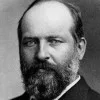CROMWELL: Yet is there a man in this court, is there a man in this country, who does not know Sir Thomas More’s opinion of this title? Of course not! But how can that be? Because this silence betokened — nay, this silence was — not silence at all, but most eloquent denial!
MORE: (with some of the academic’s impatience for a shoddy line of reasoning) Not so, Mr. Secretary, the maxim is “qui tacet consentire”: The maxim of the law is: (very carefully) “Silence Gives Consent .” If therefore you wish to construe what my silence “betokened,” you must construe that I consented, not that I denied.
CROMWELL: Is that in fact what the world construes from it? Do you pretend that is what you wish the world to construe from it?
MORE: The world must construe according to its wits. This court must construe according to the law.
Robert Bolt (1924-1995) English dramatist
A Man for All Seasons, play, Act 2 (1960)
(Source)
During More's treason trial for, without giving a reason, refusing to take an oath that the King of England also held the title "Supreme Head of the Church in England."
Bolt's 1966 film adaptation uses nearly the same lines (Source (Video); dialog verified):CROMWELL: Yet is there a man in this court, is there a man in this country, who does not know Sir Thomas More's opinion of this title?
GALLERY: No!
CROMWELL: Yet how can this be? Because this silence betokened -- nay, this silence was -- not silence at all, but most eloquent denial!
MORE: Not so. Not so, Master Secretary, the maxim is "qui tacet consentire": The maxim of the law is "Silence Gives Consent." If therefore you wish to construe what my silence "betokened," you must construe that I consented, not that I denied.
CROMWELL: Is that in fact what the world construes from it? Do you pretend that is what you wish the world to construe from it?
MORE: The world must construe according to its wits. This court must construe according to the law.
Quotations about:
consent
Note not all quotations have been tagged, so Search may find additional quotes on this topic.
The mind sins, not the body; if there is no intention, there is no blame.
[Mentem peccare, non corpus, et unde consilium abfuerit, culpam abesse.]
Livy (59 BC-AD 17) Roman historian [Titus Livius]
Ab Urbe Condita [From the Founding of the City; The History of Rome], Book 1, ch. 58 (27-9 BC)
Reassurances given to Lucretia, wife of Collatinus, after her rape by Sextus Tarquin. She still kills herself.
Different sources use abfuerit or afuerit. Restated as a legal term, it's usually given as Mens peccat, non corpus, et unde consilium abfuit, culpa abest.
Alt. trans.:
- "That it is the mind sins, not the body; and that where intention was wanting guilt could not be." [tr. Spillan (1896)]
- "The mind sins, not the body, and there is no guilt when intent is absent." [tr. Luce]
- "The mind sins, not the body; and where the power of judgment has been absent, guilt is absent." [Source]
- "The mind alone was capable of sinning, not the body, and that where there was no such intention, there could be no guilt." [tr. Baker (1823)]
- "It is the mind that sins, not the body, and where there has been no consent there is no guilt." [tr. Roberts (1905)]
- "It is the mind that sins, not the body; and that where purpose has been wanting there is no guilt." [tr. Foster (1919)]
- "It is the will only that is capable of sinning, not the body; and where there is no intention, there can be no guilt." [Source]
But liberty is no negation. It is a substantial, tangible reality. It is the realization of those imperishable truths of the Declaration, “that all men are created equal”; that the sanction of all just government is “the consent of the governed.” Can these be realized until each man has a right to be heard on all matters relating to himself? The plain truth is, that each man knows his own interest best. It has been said, “If he is compelled to pay, if he may be compelled to fight, if he be required implicitly to obey, he should be legally entitled to be told what for; to have his consent asked, and his opinion counted at what it is worth. There ought to be no pariahs in a full-grown and civilized nation, no persons disqualified except through their own default.” I would not insult your intelligence by discussing so plain a truth, had not the passion and prejudice of this generation called in question the very axioms of the Declaration.
James A. Garfield (1831-1881) US President (1881), lawyer, lay preacher, educator
“Suffrage and Safety,” speech, Ravenna, Ohio (4 Jul 1865)
(Source)
On extending the vote to newly-freed slaves.
A woman should never take a lover without the consent of her heart; nor a husband without the concurrence of her reason.
Anne "Ninon" de l'Enclos (1620-1705) French author, courtesan, patron of the arts [Ninon de Lenclos, Ninon de Lanclos]
The Memoirs of Ninon de L’Enclos, Vol. 1, “Life and Character” (1761)
(Source)
The worst error a president can make is to assume the automatic implementation of his own decisions. In certain respects, having able subordinates aggravates that problem, since strong personalities tend to have strong ideas of their own. Civil government operates by consent, not by command; the President’s task, even within his own branch of government, is not to order but to lead.
Arthur M. Schlesinger, Jr. (1917-2007) American historian, author, social critic
The Age of Roosevelt: The Coming of the New Deal, ch. 33, sec. 3 (1959)
(Source)
He who has conquered is not conqueror
Unless the conquered one confesses it.[Qui vincit non est victor nisi victus fatetur.]
To be vested with enormous authority is a fine thing; but to have the onlooking world consent to it is a finer.
Mark Twain (1835-1910) American writer [pseud. of Samuel Clemens]
A Connecticut Yankee in King Arthur’s Court, ch. 8 “The Boss” (1889)
(Source)
That government only can be pronounced consistent with the design of all government, which allows to the governed the liberty of doing what, consistently with the general good, they may desire to do, and which only forbids their doing the contrary. Liberty does not exclude restraint; it only excludes unreasonable restraint. To determine precisely how far personal liberty is compatible with the general good, and of the propriety of social conduct in all cases, is a matter of great extent, and demands the united wisdom of a whole people. And the consent of the whole people, as far as it can be obtained, is indispensably necessary to every law, by which the whole people are to be bound; else the whole people are enslaved to the one, or the few, who frame the laws for them.
James Burgh (1714-1775) British politician and writer
Political Disquisitions, Book 1 “Of Government, briefly” (1774)
(Source)
We hold these truths to be self-evident, that all men are created equal; that they are endowed by their Creator with inherent and inalienable Rights; that among these, are Life, Liberty, and the pursuit of Happiness; that to secure these rights, Governments are instituted among Men, deriving their just powers from the consent of the governed; that whenever any Form of Government becomes destructive of these ends, it is the Right of the people to alter or abolish it, and to institute new Government, laying its foundation on such principles, and organizing its powers in such form, as to them shall seem most likely to effect their Safety and Happiness.
Thomas Jefferson (1743-1826) American political philosopher, polymath, statesman, US President (1801-09)
Document (1776-07-02), “Declaration of Independence”
(Source)
As modified and approved by the Continental Congress. Compare to Jefferson's original draft.
For metaphysicians and politicians may dispute forever, but they will never find any other moral principle or foundation of rule or obedience, than the consent of governors and governed.
John Adams (1735-1826) American lawyer, Founding Father, statesman, US President (1797-1801)
Essay (1775-03-06), “Novanglus,” No. 7, Boston Gazette
(Source)
This series of essays was written by Adams under the pseudonym of "Novanglus" (Latin for "New England"), responding to essays from his past friend Daniel Leonard as "Massachusettensis" on colonial leadership and what the proper relationship was between the American colonies and Britain.
Only free men can negotiate; prisoners cannot enter into contracts. Your freedom and mine cannot be separated.














